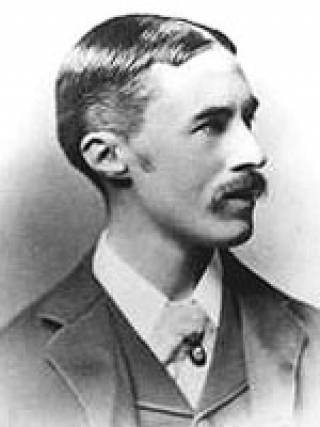The Department of Greek and Latin at UCL organizes a Housman Lecture each year. These are delivered by a scholar of international distinction from outside London.

2024 Victoria Rimell (University of Warwick): Seneca, consolation and the crisis of critique
13 March 2024
Victoria Rimell (University of Warwick): Seneca, consolation and the crisis of critique
Twenty years after Bruno Latour called for critics to stop ‘adding ruins to ruins’ in the face of global permacrisis, this paper takes as its framing gesture post-millennial debates on why criticism needs renewal, and what ‘post-critique’ might look like, alongside the particular disciplinary reckoning now faced by classical philology as a field. Although the theologies of critical distance and invulnerability laid bare in various modes of ‘post-critique’ also underpin the methods of classical philology, Latour’s invitations to revive rather than to fight empiricism have seemed to sanction philology’s doubling down on its long-standing positivistic sense of responsibility towards antiquity; preservation and reparation recuperate an old agenda. The paper considers what the genre or mode of ancient consolation – developed most fully in extant literature by Seneca the Younger – has to say to classical philology as an archival-reparative project that shores up the subject against loss. While Seneca the consoler is periodically undone by grief, as he relates to and speaks of the bereaved, and explicitly involves his audiences as fellow-learners in the ethical praxis of interpretation, philology has treated the consolations as generalisable artefacts, domains of political, philosophical and literary self-fashioning, or has disappeared them entirely from Seneca ‘as a whole’. They have come to stand, in opposition to tragedy, for the principle of self-regulation, or mourning without melancholia, but at the same time languish - contradictory yet unremarkable – in tragedy’s shadow, unable to hold our attention. The paper approaches the consolations and consolatory letters as critical worlds-in-themselves, both generalising/generalisable and particular, whose uneven movements in response to loss can help us think creatively about the future of critique.
- 2023 Richard Armstrong: ‘Homer the Balladeer: Francis Newman, William Maginn, and the Politics of Translation’ (15 March 2023)
- 2022 Gregson Davis: ‘The reception of Lucretius’ On the Nature of Things in Aimé Césaire's Journal of a Homecoming’ (18 May 2022)
- 2021 Susan A. Stephens: ‘Jason and the Athletes’ (27 October 2021)
- 2020 Ellen Oliensis: ‘The Trials of Latona in Ovid’s Metamorphoses’ (28 October 2020)
- 2019 Victoria Wohl: ‘The sleep of reason: the psyche and the subject in ancient Greece’ (22 May 2019)
- 2018 Bernard O'Donoghue: ‘Chosen Ancestors: Seamus Heaney and Virgil’ (14 March 2018)
- 2017 Judith Butler: ‘Kinship Trouble in The Bacchae’ (8 February 2017)
Published text of this lecture
Watch the webcast of this lecture- 2016 Maurizio Bettini: ‘From market to metamorphosis. Cultural images of "translation" in Rome’ (23 February 2016)
- 2015 Leslie Kurke: ‘Pindar’s Material Imaginary: Dedication and Politics in Olympian 7’ (4 June 2015).
- 2014 Denis Feeney: ‘Ovid as a literary historian’ (20 March 2014)
- 2013 Eric Csapo: ‘The Dionysian Parade and the Poetics of Plenitude’ (20 February 2013)
- 2012 Stephen Hinds: ‘Displacing Persephone: Epic between Worlds.’
- 2009 Alessandro Barchiesi: ‘Ovid, Boccaccio, and the emergence of prose fiction’ (3 June 2009)
- 2009 Housman 150 Anniversary: UCL celebrated the 150th anniversary of the birth of AEH with an evening of talks. David Butterfield, Stephen Harrison, Peter Howarth and Norman Vance spoke about Housman’s life, scholarship, poetry and place in Victorian culture.
- 2007 Christopher Pelling: ‘The Grandstand that was Greece: Greek observers on Roman Civil Wars.’
- 2005 Pat Easterling: ‘Ancient Plays for Modern Minds?’ (14 June 2005)
 Close
Close



